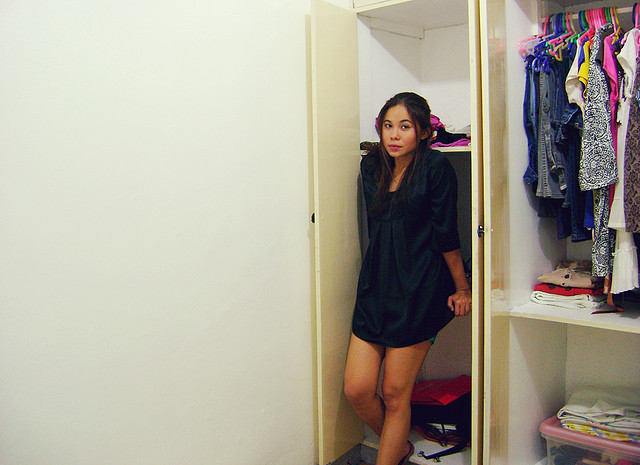You’ve probably heard the expression “less is more,” but when it comes to our possessions, is this always true?
For some time now, I have been a member of several online groups for the promotion and support of minimalist living.
After reading the same confused questions day in and day out, I thought it was high time to set the record straight on the reality of how (and why) it’s so satisfying to live a minimalist lifestyle.
Let me begin by explaining why I am in a position of authority to write this article. My journey of living a minimalist life arose from necessity rather than choice. Without going into the gritty details, my life had collapsed around me and I had no space for anything that wasn’t completely essential.
When one is living in a small van on the road, traveling from place to place, there is absolutely no room for anything that “might” become useful one day. Sentiment was liquidated, and even items that only served a single purpose—regardless of how helpful that purpose was—were gracefully donated and replaced by items that could successfully multitask.
When my situation improved, I was in a position to buy a small (old) yacht for an absolute steal. Although this was a massive upgrade from the van for me, anyone that has ever spent an extended period of time living on a yacht will attest to the requirement for a heightened level of common sense in the things that are chosen to share the space.
There are many reasons beyond need that people make the choice to go minimal in their lives. A small living space is often a major driving force, but even larger spaces tend to have an aesthetic appeal to them that clutter won’t afford.
Beyond the way it makes us and our home look and feel, there are some really powerful reasons to choose minimalism.
1. By choosing to surround ourselves with less, we are contributing to a better world.
The endless cycle of production, purchase and waste, upgrading constantly for bigger and better, places a huge stress on the resources of the planet.
Existing consumption patterns as seen in Europe and North America can put strain on the environment and natural resources, which can have serious impacts on society. But, how much of the environmental degradation we see today is as a result of over-population and how much is due to over-exploitation due to consumerism and geopolitical interests?
How often do we upgrade something in our household, replacing an object that still works just fine, and putting the replaced item into a cupboard or spare bedroom, adding to the clutter?
2. Financial strain is drastically reduced.
Purchasing what we need instead of what we want can go hand in hand with reducing and eliminating debts.
3. As we progress down the path of such a lifestyle choice, we start to notice something beautiful happening.
We tend to become more grateful for the things we do have, and our gratitude starts to permeate all the other aspects of our lives.
4. One of the beautiful paradoxes of having less is that we tend to become more giving.
The more we own, hoard and amass, the more we need to continue doing so, and the more fearful we tend to become of parting with what is “ours.” When we have truly embraced a minimalistic mindset, we give freely of what we have to those that are in need.
5. We have more freedom when we own less.
We tend to get out and explore our world more, because we lose the compulsion to stay home and be surrounded by our things.
Questions frequently asked by those new to the idea of a minimalist lifestyle (or those that don’t understand the inherent philosophy behind it) are usually focused on “hows”—how many pots should I have in my kitchen? How many T-Shirts are too many? What do we do with things that may have sentimental value but little practical use?
The answer to these and every other question you can think of on this topic is: you get to decide!
The reality is that we are burdened by our attachments, not by our possessions. Holding attachment to an idea or concept of how something “should be” is as cluttering and controlling to us and our lives as is surrounding ourselves with junk. Minimalism is about relaxing, de-stressing and removing burdens from our lives. If we get rid of the clutter but hoard bothersome thoughts that we are “not doing it right,” then we aren’t really following the deeper philosophy of what this lifestyle represents.
When making the choice to reduce the clutter from your life, sit with the decision for a while and understand what your own reasons are for doing it. If this is just a path to be more “chic,” or spiritual, or to look better to your neighbors, the process will do absolutely nothing but add further stress to your life.
As with everything, when done for the right reasons, it can be a beautiful part of a life well-lived.
Author: Christopher Jones
Editor: Renée Picard
Photo: Helga at Flickr











Read 0 comments and reply